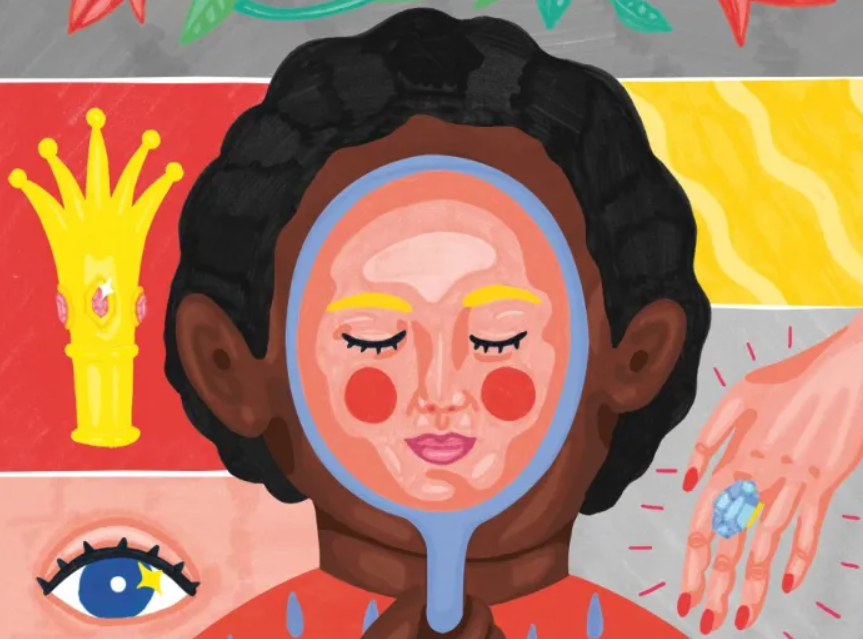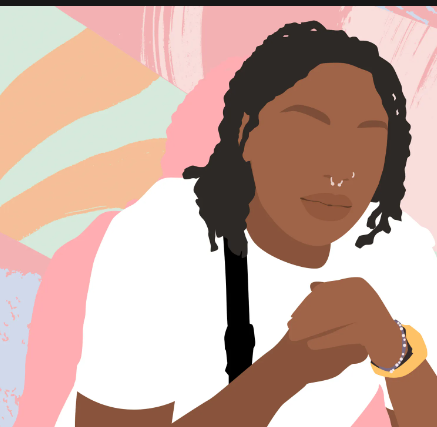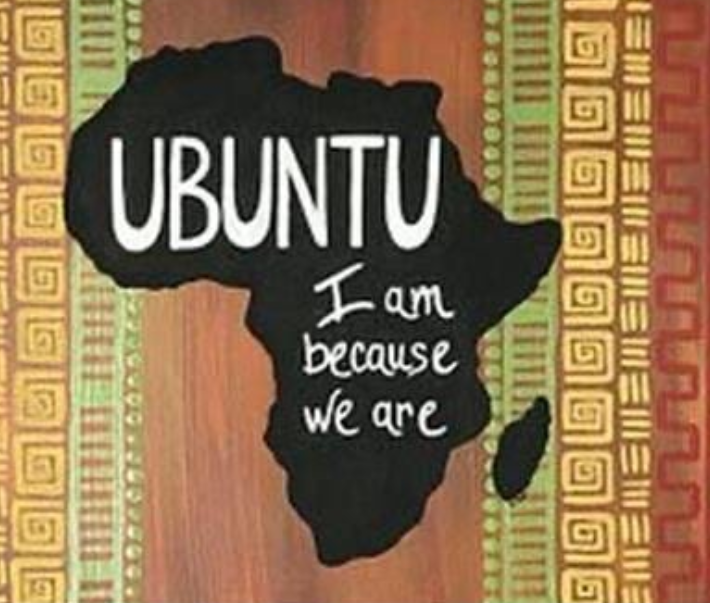
In the west, and increasingly across the modern world, a diagnostic, biomedical approach to ‘mental health’ prevails.
When a person in emotional distress reaches out for support, this system screens for symptoms, assesses, and diagnoses ‘disorders’. It pathologizes the person based on arbitrary clusters of symptoms and precedes to treat their disorder, often with medication and talking therapies that instruct them how to correct the negative thinking that led them feel distress in the first place.
The essence of this approach is finding what is wrong with the individual and fixing them. Laying the responsibility for emotional distress at the feet of ‘negative thinking’ or ‘chemical imbalances’ ignores the social, cultural and environmental factors at play and masks the need to address systemic causes.
Eurocentric power structures tend to make this single perspective the most definitive way of understanding human emotional distress. This has the effect of marginalizing other perspectives and knowledge frameworks that are deemed inferior, particularly those rooted in non-european cultural traditions which tend to challenge western assumptions and don’t tend to lend themselves to the contemporary obsession with quantitive research to measure outcomes and promote ‘evidence-based’ practice.
This can result in a paradigm that is oppressive and insensitive to the needs of marganilised communities, upholding colonized hierarchical systems.
“When colonizers reject and even criminalize native healing practices, stigma immediately attaches. Layers of shame-filled pathology buries innate, ancestral wisdom. Shame creates isolation and embeds into cultural narrative in the form of internalized oppression”.
(@InclusiveTherapists)
Eurocentric Individualism

Despite being perceived as the only rational, ‘common-sense’ option, meanstream western psychology is not neutral or value-free. Nor does it apply universally across diverse populations in the way that many assume (that assumption itself demonstrating eurocentricism).
Mainstream western psychology carries within it a number of assumptions that run counter to the traditional, ancestral values of many black and brown communities.
Neutrality is a myth. Western psychology is not apolitical or existing in a political vacuum. It reinforces the eurocentric primacy of the autonomous individual over the community.
It colludes with the bio-medical focus on symptoms, labelling, pathologising and medicating emotional and spiritual distress.
And most forms of therapy maintain a hierarchical power imbalance between doctor and patient, therapist and client, expert helper and the person in need of help.
Even the humanistic Person Centred approach that I initially trained in and have taught only goes half of the way towards where we need to be. To its credit, the Rogerian Person Centred approach is a radically human and holistic approach to therapy that is critical of the prevalent diagnostic, pathologising bio-medical approach to ‘mental health’. It eschews the focus on symptoms and labels in favour of being attuned to the experience of the individual. It also strives to redistrubute power from the therapist and the system back to the individual – taking a radical non-directive, non-expert stance and rejecting the illusion that we therapists know what is better for anyone else. In this way it is naturally anti-oppressive, refusing to join the cacophony of voices telling each of us how to think, how to feel, what to do and who to be.

However, even the Person Centred approach remains heavily eurocentric in its inherent emphasis on the individual and their journey towards actualisation.
It also inadvertently colludes with existing oppressive power structures by, like most therapies, maintaining a huge blind spot with regards to the societal and structural realities in which all of us live.
As David Bedrick, Psychotherapist and ‘Psychologial Activist’ writes:
“We need to be wary of a psychology that is devoted to, married to, individualizing our suffering – a psychology that looks for “mental illness” and pathology inside the individual only.
Because when we fail to witness the whole story, shame enters. And shame makes us think, “What the fuck is wrong with me?” instead of seeing how we are part of a system, a larger family, and a story that doesn’t isolate us but connects us to others and our own gloriously painful and magnificent humanity.“
David Bedrick, shared on Facebook.
For many black and brown people, experiences of racism, racial microaggressions and discrimination contribute directly to our experience of ‘mental health’. We are statistically more likely to experience poverty and homelessness, do less well at school, be unemployed, live in ‘rougher’ lower social-economic neighbourhoors, be stopped and searched by the police and be treated more harshly by the courts.
Zooming out further, we might consider the pervasive and pernicious effect of living (especially whilst black) in a colonial / imperialist, white supremist, racist, capitalist and patriarchal society.
For western therapy to ignore these societal and structural issues is, at best, to be negligent to the needs of black and brown communities, at worst to collude with or even actively uphold structural inequalities and oppression.
Focusing exclusively on the individual, divorcing them from the historical, environmental and structural context in which they live, and locating the problem inside of them and how they think, is a form of colonial violence that equates to gaslighting.
Many of the ‘symptoms’ that bring clients to therapy might be viewed instead as necessary survival mechanisms that arise as a response to daily violence at the hands of oppressive systems, poverty, and generations of trauma. Those same ‘symptoms’ might also be understood to come from our disconnection from our inner self, from spirit, from our ancestors and from each other.
So what is the alternative?
Ubuntu: I am because we are

The African principle of Ubuntu, often translated as “I am because we are” calls us to recognise that each of us is only a person in relation to other people. It carries a sense of recognising our common humanity, oneness and the importance of community.
Ubuntu can be a powerful inspiration for a life-affirming alternative approach to emotional distress that is nurturing to cultural identity and delivered at a grassroots level, by us, for us.
De-colonised therapy means offering a safe, holistic and culturally-sensitive space that, rather than centering the individual, is radically collectivist and community-focused.
Practically speaking this means working in groups or sharing circles. Whilst I continue to believe in the healing potential of individual therapy and the space it creates for deep exploration, I feel that group-based community healing practices offer something unique that cannot be achieved in the traditional therapy room. Groupwork is powerful for any demographic, but for black and brown communities it seems to speak to a deep rooted ancestral pull towards collectivism.
De-colonised approaches center community, spirituality, social justice and the innate wisdom of each of us over the analysis or diagnosis of experts. This contrasts with maintream western models that try to leave ‘social justice’, politics and spirituality outside of the therapy room.
Moving away from a focus on individual symptoms and disorders, the focus can shift to our collective wellbeing as a community and the ways in which we can come together in ways that are nurturing to us on an individual level and to the community as a whole.
Another African philosophy, “It takes a village to raise a child” is a proverb that suggests that an entire community of people must provide for and interact positively with children for those children to experience and grow in a safe and healthy environment. I’ve come to believe that, for black, brown and indigenous communities, it might also take a village to heal our individual and collective distress and intergenerational trauma.
Whilst there is no definitive template, African-inspired approaches may incorporate aspects of traditional story telling, myths, archetypes and ancestral wisdom. They might nurture creativity and expression through art, music and dance as well as connection to nature and the use of traditional herbal “bush” remedies and medicinal plants.
African-inspired approachs might include ancestral work, spiritual practices such as libation, meditation and drum circles, intergenerational trauma work, dealing with grief, rage and accessing joy and creativity in community.
We might also draw on diverse holistic approaches from other complimentary cultures such as Yoga, Reiki and other holistic therapies that may not necessarily be African in origin but fit well within with a decolonised framework.
Decolonising therapy might also include considering alternative models of payment, such as pay what you can / pay what you feel and/or subsidising therapy through grassroots community fund-raising.
Decolonised ‘mental health’ care doesn’t have a one-size-fits all template. It can only be a vibrant, living and evolving approach rooted in the unique needs, history and culture of the community in which it arises.
We can also take these principles in to our therapeutic work with individuals so that even as we do the deep inner work of one-to-one therapy, we never lose sight of the historical, societal, environmental and structural forces that many therapies and therapists ignore.
“Incorporating African-centered spirituality, ancestral reverence, the use of our relationship to nature and intuition, is the key to reclaiming this power that comes from within and is not something any helper can bestow on anyone else. By decolonizing our healing, we are healing our Ancestors, ourselves, and our descendants“.
(‘Talks with my Ancestors’, Rachelle Péan)
